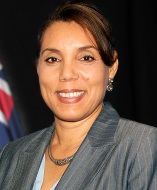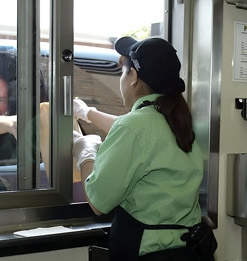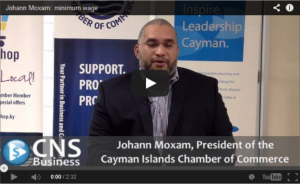Archive for August 20th, 2014

Mentors wanted to help kids ‘Aim Higher’
 (CNS): Organised by the Cayman Islands branch of the International Women's Insolvency and Restructuring Confederation and local consultants Shirlaws Cayman, ‘Aim Higher’ is looking for 40 adult volunteers for this forthcoming school year to mentor teens attending John Gray High School. Mentors are needed to work at the school one lunch time per week one on one with students aged 15 and 16 to help them realize their full potential starting on 16 September. Mentors will coach support the young people through their school life including exam preparations and developing study skills techniques.
(CNS): Organised by the Cayman Islands branch of the International Women's Insolvency and Restructuring Confederation and local consultants Shirlaws Cayman, ‘Aim Higher’ is looking for 40 adult volunteers for this forthcoming school year to mentor teens attending John Gray High School. Mentors are needed to work at the school one lunch time per week one on one with students aged 15 and 16 to help them realize their full potential starting on 16 September. Mentors will coach support the young people through their school life including exam preparations and developing study skills techniques.
IWIRC is a not for profit professional women's organisation which has a mandate to get involved in the community and education is a particular focus. “We are proud to support the JGHS Aim Higher initiative through the mentoring program by organising and financially underwriting the training and follow up throughout the year,” said Laura Hatfield from the Cayman branch.
Shirlaws Cayman are also a partner in the programme as they will be conducting the training for both mentors and students to introduce them to the nature of the coaching relationship and develop the skills and qualities that will enable them to make a difference. Aside from committing to the weekly lunchtime sessions volunteers will need to commit to attending the four free training sessions. Students will receive their training during the first week of term before the mentoring starts.
Training for mentors is scheduled over two weekends in August and September starting on Friday 29 August 5.30pm – 8.30 pm then Saturday 30 August 9am – 1pm and the same times the following week of the 5&6 September. It will take place at the Cayman Islands Law School on the 3rd floor of the former Cayman National Bank building in George Town, opposite the main Court House between the clock tower and the post office. Mentors will also need a police clearance certificate.
Anyone who is interested in the programme and can to commit to the lunchtime mentoring sessions and the training is asked to contact LHatfield@solomonharris.com or KWilliams@solomonharris.com

Downed CUC pole causes traffic diversion
(CNS): The RCIPS issued a warning to drivers around 2-30 this afternoon following a collision in the Spotts, Newlands area. Traffic was being diverted after CUC crews were called to the location to repair a pole struck in a traffic smash. Police said that while the emergency repairs were being carried out traffic proceeding east on Spotts Straight will have to be diverted through Spotts-Newlands onto the East-West Arterial and west bound traffic in Savannah will be diverted onto Hirst Road and the East-West Arterial. An RCIPS spokesperson said work was expected to last approximately two hours.

Robbers strike at popular bar
 (CNS): The police are on the hunt for two armed suspects who held up staff and customers at gunpoint at a bar in Grand Harbour, Red Bay on Tuesday night. An RCIPS spokesperson who confirmed the robbery in a release at around 2pm on Wednesday said officers are appealing for witnesses to the heist in which an undisclosed sum of cash was taken from the bar and customers along with other personal items. The robbery happened shortly before 11pm last night at the outside bar at Beaches in Grand Harbour. Police said that the two men were both armed with what appeared to be silver coloured handguns and the made off with the stolen loot on foot. Anyone in the area at the time or who saw anything suspicious is encouraged to call detectives on 949 4222 or Crime Stoppers on 800 8477(TIPS).
(CNS): The police are on the hunt for two armed suspects who held up staff and customers at gunpoint at a bar in Grand Harbour, Red Bay on Tuesday night. An RCIPS spokesperson who confirmed the robbery in a release at around 2pm on Wednesday said officers are appealing for witnesses to the heist in which an undisclosed sum of cash was taken from the bar and customers along with other personal items. The robbery happened shortly before 11pm last night at the outside bar at Beaches in Grand Harbour. Police said that the two men were both armed with what appeared to be silver coloured handguns and the made off with the stolen loot on foot. Anyone in the area at the time or who saw anything suspicious is encouraged to call detectives on 949 4222 or Crime Stoppers on 800 8477(TIPS).

HSA slims down by almost 80lbs in fitness challenge
(CNS): Nineteen staff members from the Health Services Authority have collectively lost 79.8 lbs, 28.5 inches in waist circumference and 12.7% of body fat following a workplace wellness programme over the last three months. The 90 day diet and fitness regime -‘Take the Challenge – Be Fit: Stay Healthy’ was about improving the health of those working in the sector and participants earned points for completing exercise logs, achieving stress management goals and accomplishing physical activity goals, as well as losing weight and lowering their body mass index (BMI). The HSA’s CEO, Lizzette Yearwood, said the positive outcome was a good reason to continue the programme.
“The success of our 2014 programme has galvanised us into ensuring we continue,” Yearwood said. “Study after study indicates that chronic non-communicable diseases such as cancer, heart disease, strokes and high blood pressure can be alleviated by maintaining a healthy weight and following a healthy lifestyle. The prevention of chronic non-communicable diseases is also the focus of this year’s Cayman Islands Healthcare Conference this coming November,” she said.
“We have made it a priority to encourage our own staff to live as healthy a lifestyle as possible and to reduce their risk of developing such diseases. I congratulate our staff for committing to and finishing the programme,” the hospital boss added.
Ann-Marie Webb came in 1st in the challenge followed by Debbie Harding in 2nd while Joy Merren and Oscar Calidonio tied for 3rd.
Dr Kiran Kumar, Medical Officer of Health, said he was pleased with the results of those who managed to complete the full programme and many did so using the buddy system to keep them motivated, a key strategy for success. Praising the winners he said, they had achieved remarkable results demonstrating that with determination and will-power, a healthy weight and lifestyle can be achieved
“For the group as a whole, their good cholesterol increased, bad cholesterol decreased and their blood pressure went down following the completion of the programme, all positive indicators that they have made an improvement to their health,” he said
The participants who completed the programme saw a combined total of 79.8 lbs reduction in weight that resulted in an impressive overall reduction of 28.5 inches in waist circumference for the group and an overall 12.7% reduction in body fat.
Prizes for the 2014 Be Fit: Stay Health Workplace Wellness programme were sponsored by the following companies, all dedicated to improving health in the workplace: CUC, Vigoro Nursery, The Westin Grand Cayman Seven Mile Beach Resort, Morritt’s Tortuga Club & Resort and Fosters Food Fair IGA. Alongside the HSA, other authorities and organisations have also followed this programme, which was spearheaded by the Public Health Department. This includes: Government Information Services, Auditor General’s Office, Shipping Registry, Maritime Authority, Ministry of Health, and Ministry of Finance and Deloitte.
For more information about the programme please contact the Public Health programme coordinator Therese Prehay at 244-2632 or please visit www.hsa.ky

Rodrigues to wield CS axe
 (CNS): The chief officer from the education and employment ministry will be heading up a new civil service unit which will be responsible for cutting the civil service. Mary Rodrigues will head the unit charged with overseeing the implementation of the Ernst and Young report on the rationalisation of the public service. Recently embroiled in a ministry scandal over the altering of an education report, the CS boss is likely to face even more controversy in her new job. Officials said the new post will include overseeing and monitoring the implementation of the Cabinet-approved recommendations from the EY report, briefing Cabinet on the outcomes and overseeing communications with all stakeholders.
(CNS): The chief officer from the education and employment ministry will be heading up a new civil service unit which will be responsible for cutting the civil service. Mary Rodrigues will head the unit charged with overseeing the implementation of the Ernst and Young report on the rationalisation of the public service. Recently embroiled in a ministry scandal over the altering of an education report, the CS boss is likely to face even more controversy in her new job. Officials said the new post will include overseeing and monitoring the implementation of the Cabinet-approved recommendations from the EY report, briefing Cabinet on the outcomes and overseeing communications with all stakeholders.
Rodrigues will be the senior staff member in a team that will include an additional three to four existing civil servants seconded from other agencies. Rodrigues will be expected to develop the policies and procedures that will guide the work of the unit, which officials have said they expect will take some years to implement.
Government has still not released any details regarding the EY findings and recommendations to help downsize the civil service but the premier and deputy governor have both spoken about consolidation or merging of departments, part privatization and complete sell-offs but so far no public authorities have been identified as the first to undergo what may prove to be radical change in the civil service and government.
As the person now designated as the leader of the forthcoming changes, Rodrigues will be tasked with revealing where and when the changes will begin. As she is understood to be taking up the post immediately, the current deputy chief officer in the ministry of education, Christen Suckoo, will assume the role of acting chief officer.
Announcing the appointment on Wednesday morning in a release, the deputy governor highlighted the importance of the new job.
“The rationalisation project is perhaps one of the most important projects undertaken by the Civil Service in the last decade and extremely important to the future direction of the civil service,” Franz Manderson stated. “For it to succeed there needs to be strong leadership and expertise. Given this, I am most pleased to have a civil servant of Ms Rodrigues’s calibre and background leading the implementation team.”
Manderson also said Rodrigues had made significant contributions to the Ministry of Education, Employment and Gender Affairs over the five years she held the post. He said during her tenure there has been a remarkable improvement in external exam results for high school students. He also pointed to the restructuring of secondary education which was undertaken during her watch, when the Year 12 programme at CIFEC was introduced. New graduation criteria have also been developed and implemented, including academic requirements for the first time.
The deputy governor also spoke about strategies to tackle under-performance in literacy and numeracy having been introduced and the first National Professional Standards for Teachers and for Principals while she was the ministry boss. In addition, Rodrigues oversaw the re-introduction of Reception in government schools, along with the first National Curriculum Framework for Early Years. Rodrigues was at the helm when the ministry established the National Work Force Development Agency and the Passport to Success Programme. She was also credited with playing a key role in the establishment of the Civil Service College.
Rodrigues joined the Civil Service in 1986 and taught for 10 years before moving to the then- Schools Inspectorate, where she became chief inspector within four years. She held this position until 2004, when she joined the Ministry of Education as deputy permanent secretary. Two years later she was named chief officer designate in the Portfolio of the Civil Service—succeeding to the role of chief officer in 2008. She became chief officer in the Ministry of Education in 2009.

ICO presses government over FOI email access
 (CNS): Following an investigation into the functionality of government's email address for FOI requests, the Information Commissioner’s Office (ICO) found that at least ten percent of the email contacts given to facilitate requests in government departments were not working. The acting commissioner has raised his concerns that for public authorities to meet their statutory obligations under the FOI Law, these addresses must function properly and that the public must be clear on who is a given authority’s information manager. With administrative issues still plaguing FOI requests, it seems that even in the first instance some authorities are falling short.
(CNS): Following an investigation into the functionality of government's email address for FOI requests, the Information Commissioner’s Office (ICO) found that at least ten percent of the email contacts given to facilitate requests in government departments were not working. The acting commissioner has raised his concerns that for public authorities to meet their statutory obligations under the FOI Law, these addresses must function properly and that the public must be clear on who is a given authority’s information manager. With administrative issues still plaguing FOI requests, it seems that even in the first instance some authorities are falling short.
“Any problems with the functionality of the designated email addresses could potentially form a serious obstacle to FOI applicants, and the Information Commissioner’s Office decided to investigate and take remedial action,” Acting Commissioner Jan Liebaers explained in relation to the office’s enquiry.
During the review of the email addresses the ICO found a catalogue of reasons why test emails topublished FOI addresses were ignored, from confusion over which employee was responsible for monitoring the FOI email inbox to spam filters blocking the mail.
In his report Liebers said that messages sent to the FOI email addresses were not being forwarded to the appropriate employees, that when staff responsible for FOI were moved no new staff was delegated, and for some reason few information managers were receiving the request made via FOI emails to their own in-boxes.
“In the view of the ICO there is no level of FOI service disruption that is acceptable, irrespective of the total volume of requests a public authority might receive. Maintaining and monitoring an email address is not a burdensome task and most of the issues encountered could be rectified with relative ease,” he found.
He also pointed out that while the majority of public authorities did receive and respond to the ICO test mail they may still need to improve some aspects of their internal procedures relating to FOI and their designated FOI email addresses.
“All public authorities should remain vigilant and seek to avoid the pitfalls,” he said. “Each public authority should make sure that the FOI-related duties of IMs are fulfilled on an ongoing basis. For instance, when an IM is absent, for whatever reason, a Deputy IM should be in place to answer FOI requests, and when an IM is assigned to other duties or leaves the public authority, a new IM should be appointed, and given appropriate procedural and technical access to fulfill that important role.”
Liebaers made a number of recommendations in his report which included written clear, consistent and accountable internal procedures to ensure that upon appointment an IM is clearly advised of their duties and responsibilities and provided with appropriate training. He said that an IM’s duties and responsibilities must be transferred to the Deputy IM or another employee when the IM takes up another position, is assigned other duties or leaves their position with the public authority, or is absent for any other reason.
He said that emails sent to the public authority’s designated FOI address should go requests are being received by more than one person at any given time in order for government entities to facilitate rather than hinder transparency at the very start of the process.
See copy of the report below.

Garbage piles up by government building
 (CNS): Further technical problems with the Department of Environmental Health’s garbage truck fleet led to a growing and unsightly pile of rubbish under the nose of government this week. The garbage was piled up in Humber Lane just yards from the Government Administration Building and it took a picture sent in by a CNS reader to gain some attention and have it collected. The snap taken at around 9am Tuesday morning was sent to the health minister and senior civil servants, which led to the trash finally being taken away.
(CNS): Further technical problems with the Department of Environmental Health’s garbage truck fleet led to a growing and unsightly pile of rubbish under the nose of government this week. The garbage was piled up in Humber Lane just yards from the Government Administration Building and it took a picture sent in by a CNS reader to gain some attention and have it collected. The snap taken at around 9am Tuesday morning was sent to the health minister and senior civil servants, which led to the trash finally being taken away.
Drugs dominate stop & search
(CNS): Under section 41 of the police law, officers from the RCIPS have considerable powers to stop and search members of the public if they randomly decide a person may be carrying drugs, weapons or stolen goods, among other issues. Here in the Cayman Islands, an FOI request by CNS has revealed that ‘stop and searches’ carried out by RCIPs officers are dominated by suspicion over drugs but only 3% result in an arrest for an offence. In the UK police forces are coming under increasing pressure to review stop and search policies as figures there have also revealed that the policy is ineffectual in combating crime, that it is fuelled by prejudice and undermines police and community relationships.
The police in the Cayman Islands have the power to stop and search anyone if officers can state that they had a reasonable suspicion that an individual was in possession of drugs or weapons, among other items, but the 3% conversion rate demonstrates that those suspicions are rarely correct.
The FOI revealed that in 2013 officers from the various units of the RCIPS made 175 stop and searches as defined under section 41 of the law. Of those, 144 were based on drug suspicions, 14 were based on intelligence, eight merely because the people were considered suspicious, four on the basis of prohibited articles, three on suspicion of carrying stolen goods and just two as a result of suspicion over possession of firearms. Police confirmed, however, that just three percent of those people stopped were arrested, calling into question the use of the policy.
A spokesperson for the RCIPS explained that police officers also stop people for various targeted reasons which do not fall under the ‘stop and search’ policy but these more targeted stops result in a better conversion rate of arrest. During 2013 the police made 440 arrests as a result of vehicle stops for various reasons, which ranged from outstanding warrants, license plates identified at crime scenes, vehicle defects and other direct evidence.
“In addition to the section 41 stop and search powers there are multiple other powers conferred in law that would allow a person or vehicle to be stopped,” the police spokesperson told CNS in relation to the release of figures.
In these cases the stop and search is more focused and the suspicion is usually backed by evidence and intelligence,leading, more often than is the case with random stop and searches, to police actually apprehending criminals rather than allegations of harassment.
In the UK the stop and search policy has been heavily criticised as the conversion rates, although better than in Cayman, are also very low and the policy has been labelled as racist.
Earlier this year, Home Secretary Theresa May pledged to tighten rules on stop-and-search amid warnings that as many as 250,000 searches a year may have been illegal. UK politicians have also suggested that police officers carrying out stop and searches should wear body cameras to crack down on abuse.

Minimum wage needs work
 (CNS): The president of the Chamber of Commerce has said that while the organization backs the concept, it won’t back the implementation of a national minimum wage until government forms a workable policy based on credible research and reasoning. Urging government to release a white paper clearly outlining the proposals and objectives, Johann Moxam said there are many issues that will need to be addressed, from enforcement to how helpers will be treated under the law before the government is in a position to introduce and set the level for a minimum wage that can work.
(CNS): The president of the Chamber of Commerce has said that while the organization backs the concept, it won’t back the implementation of a national minimum wage until government forms a workable policy based on credible research and reasoning. Urging government to release a white paper clearly outlining the proposals and objectives, Johann Moxam said there are many issues that will need to be addressed, from enforcement to how helpers will be treated under the law before the government is in a position to introduce and set the level for a minimum wage that can work.
Although Moxam has said the Chamber membership supports the principle of a minimum wage, its recently published position paper on the issue seems to take a very reluctant position and Moxam himself was less than enthusiastic about the government’s ability to get the policy right when he spoke to CNS.
 “The Chamber understands that the political mandate of this government is to implement minimum wage legislation. However, before such a decision is made or finalized we encourage the government to look at the issue holistically, proceed cautiously and ask itself several questions outlined in our position paper,” he said.
“The Chamber understands that the political mandate of this government is to implement minimum wage legislation. However, before such a decision is made or finalized we encourage the government to look at the issue holistically, proceed cautiously and ask itself several questions outlined in our position paper,” he said.
Although the PPM government campaigned for a minimum wage during the run up to the 2013 general election and marked it as an early priority in the party’s manifesto, Tara River, the current employment minister who ran on the Coalition for Cayman ticket, did not campaign for its introduction and was understood to oppose the principle. During a debate in the Legislative Assembly in February on a private members motion to introduce a basic rate of $5 and get the legislation on the statute books and then gradually increase it, Rivers rejected the paper brought by Ezzard Miller.
She said the ministry was establishing a committee and researching the issue and needed data on which to base the policy.
According to sources close to the committee, despite having been mandated to work on this issue for more than seven months, the government still does not have comprehensive data on the issue, including how many local workers would be impacted or how it would be enforced.
The Chamber boss also said that the organisation has not seen any statistical information about the issue and queried where was the relevant data from all sectors of the work force, especially tourism and hospitality, construction, retail, the service industry, security companies, labour intensive industries, domestic workers and other jobs that will be impacted to inform the policy.
Moxam told CNS that he had concerns about the enforcement because if government cannot police the policy the problem of importing cheap labour will persist.
“One of the biggest issues will be enforcement and who will do the enforcing once a minimum wage is implemented. Will that be a separate agency or will it fall to the NWDA or Immigration? “ Moxam asked. “Both those agencies are already stretched and arguably underperforming when it comes to their current remits so government really needs to think about this and many other issues before it goes ahead and implements the basic wage. We are a long way from the place we want to be are there not enough answers. At the moment we don’t know what we want to do or how we are going to achieve it.”
The president said the Chamber’s position paper has listed the issues that the organisation’s members, many of whom will be impacted by the introduction, feel have to be addressed before the law is passed. He also warned government that it is an economic policy issue that should not be politicised.
“This matter is too important to politicize. The Ministry of Labour and government have to guard against playing politics with this issue. Is this being contemplated to appease one's conscience or truly help Caymanians?” Moxam asked as he called on government to spell out how the policy will help local people.
Although Moxam may believe that a minimum wage should not be political, it is a political issue as its introduction around the world in democracies is motivated by a desire to prevent exploitation of low wage earners by employers. It has never been warmly welcomed by business or right of centre politicians who support the power of the market place.
In Cayman supporters say the introduction of a minimum wage will help local people as it should reduce the amount of cheap labour being imported. With security guards, janitors, gardeners and other low wage earners known in some cases being paid well under $5 on hour, if employers are forced to pay those workers a liveable wage, local people could take on those jobs and stop what many say is the importation of poverty.
Nevertheless, the Chamber says government must examine the other issues surrounding the introduction and the overall size of the problem they are seeking to remedy before passing the law.
“It is important that government understands the tipping point for businesses and all households with the introduction of a national minimum wage,” he said. “This entire discussion is too important for the country, economy and people to get wrong so let's remove the emotional and political rhetoric from the discussion and ensure this decision is grounded in facts and we are clear with the objectives behind it."
In the end it is the rate at which the wageis set that will determine how much support the policy will get from the business community or workers. Too low and it will fail to address the problem of cheap labour but too high and business will not support it and will seek ways to either avoid complying or pass on the costs to the consumer in an inflated economy where the ordinary man in the street already carries a significant financial burden for propping up government as well as the business community.
See the Chamber's full position paper on the minimum wage below.
Related video on CNS Business: Dialogue before minimum wage, Moxam urges